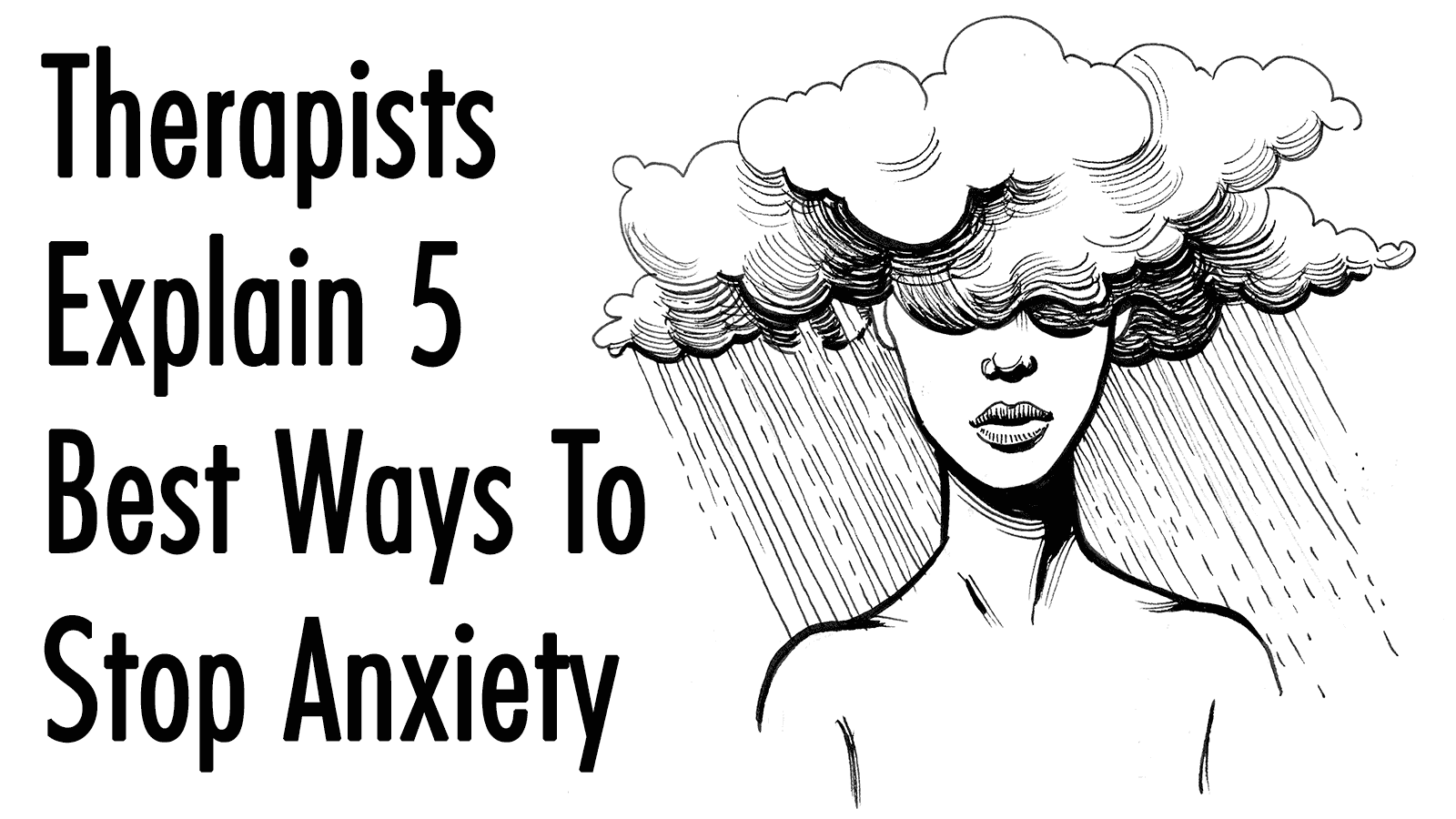More than 28 million Americans suffer from panic every year. Most people don’t realize what they are dealing with until the symptoms become crippling. While so many are suffering from this condition, it’s estimated that 38 percent don’t seek help. The problem is that there is still a stigma attached to mental health disorders. Then consider those that don’t have insurance or feel they can handle the issue alone. It’s acceptable to have nervousness regarding deadlines at work, a busy schedule or the daily grind. However, it’s when that angst starts interfering with your day that it becomes a disorder.
Anxiety disorders are divided into six categories, they are:
•OCD or Obsessive-Compulsive Disorder
•PTSD or Post Traumatic Stress Disorder
•GAD or General Anxiety Disorder
•Panic Disorder
•Social
•Phobias Such as Agoraphobia
5 Ways to Stop A Anxiety Attack
Research shows that an imbalance of the chemicals in the brain causes that unwanted feeling of impending doom. While medications have proven to be a great source of help for many, they are not always the answer. There are many ways to help rebalance those chemicals that don’t require prescription drugs. By following a few simple tips, you can learn how to stop a panic attack and ease the racing heartbeat, nausea, sweating and intense fear.
1. Learning the Feeling of Impending Doom Will Pass
Once you have experienced a few panic attacks, you will soon begin to recognize the symptoms. You must train your brain to comprehend that the situation is temporary. Though it feels like you are having a heart attack or a stroke, you must remind yourself that it will pass. Most panic attacks last between 3-10 minutes. Though you will be left feeling drained, you can still carry on your day once it’s gone.
Keep a journal of attacks and the sensations you experienced. Refer to this journal to help you make a mental note of how your anxiety disorders displays. Then, the next time one of these sudden attacks comes around, you can remind yourself that these feelings happened before, but you quickly recovered. You can lessen the severity by calming yourself during the incident.
2. Teach Yourself the Art Of Deep Breathing
One of the best ways to beat anxiety is through deep breathing. When a mother is in labor, breathing exercises help her to control the pain. The same theory is used to help with panic. Inhaling deeply and exhaling slowly can help to get the oxygen flowing.
Do you experience a choking sensation when you are having an attack? Most people hyperventilate and don’t get the oxygen they need. However, a deep breathing exercise can help to shorten the duration of the attack. Mastering the art of breathing can help you to control these unwelcomed attacks too.
3. Add Exercise to Your Day
How many times has your doctor told you that you need to exercise? While you may have been thinking about your weight, they know that working out has a bigger impact than calories and pounds. Exercise can do as much as an antidepressant medication. When you move your body, you cause a chemical reaction that releases endorphins in your brain.
The “feel good hormones” as they are called, help to balance neurotransmitters and improve your mood and anxiety level. There are numerous stories on the internet of people who have increased their exercise and decreased their panic, depression, and improved their whole outlook.
4. Find Your Happy Place
It’s hard to be tense when you picture yourself lying on a beach soaking up the sun. Visualization is a great tool that many find effective. You must remove your mind from the panic to calm yourself. The next time your heart is racing, and you are feeling the sensation of impending doom, do your deep breathing exercises and picture yourself at a happy place.
Some take themselves to the mountains reaching the top after a long climb, or others want to go to grandma’s house and reminisce about the good old days. Find “someplace” that brings you peace and makes you feel good. One of the best ways to beat anxiety is to transport your mind to a happier place.
5. Use Self Talk
Self-Talk is a very effective tool that works. Have you ever heard the term “talk yourself off the ledge?” The same theory applies to talking yourself through a panic attack. Tell yourself things like:
•”This is a temporary situation.”
•”I am not dying.”
•”I’ve had this happen to me before and was okay.”
•”These sensations are not life-threatening.”
•”I am not having a heart attack or stroke.”
•”I can get through this.”
By giving positive reinforcements during these stressful times, you can learn to minimize their effect. Beating anxiety is not something that is done overnight. However, you can reduce the frequency, the impact, and learn to manage this debilitating condition.
https://www.youtube.com/watch?v=lFdcCXmGpy4


















